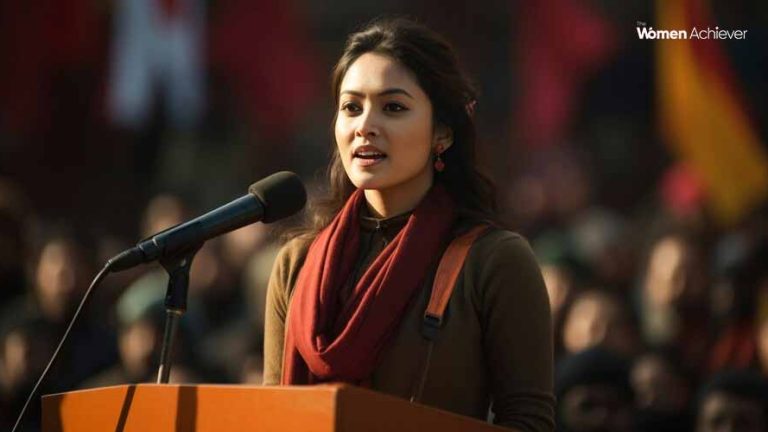These challenges stem from socio-cultural norms, structural barriers, and institutional shortcomings
India, with its vibrant democracy, has witnessed the rise of many prominent female leaders who have shaped the nation’s political landscape. Despite significant progress, female politicians continue to face a host of challenges that hinder their representation and effectiveness in politics. These challenges stem from socio-cultural norms, structural barriers, and institutional shortcomings.
1. Gender Bias and Stereotyping
Indian society, deeply rooted in patriarchal values, often stereotypes women in leadership roles. Female politicians are frequently judged based on their appearance, behavior, and personal lives rather than their political acumen or achievements. This scrutiny undermines their credibility and positions them as exceptions rather than equal participants in the political arena.
2. Underrepresentation in Politics
Despite forming nearly half of the country’s population, women remain significantly underrepresented in legislative bodies. In the Lok Sabha, women’s representation has been consistently low, hovering around 14%. This lack of representation limits their influence on policymaking and governance.
3. Lack of Financial Resources
Campaigning for elections in India requires substantial financial resources. Female candidates often struggle to secure funding due to limited access to financial networks and skepticism from potential donors. This financial disparity puts them at a disadvantage compared to their male counterparts.
4. Violence and Harassment
Female politicians in India frequently face threats, harassment, and violence. This can include online trolling, character assassination, and even physical intimidation. Such actions aim to silence and discredit them, discouraging other women from entering politics.
5. Family Responsibilities
Societal expectations often place the burden of familial responsibilities on women, leaving them with limited time and energy to engage fully in political activities. The lack of support systems, such as childcare or flexible work arrangements, further exacerbates this challenge.
6. Limited Access to Party Leadership Roles
Political parties in India are often male-dominated, with women rarely occupying top leadership positions. Decision-making roles are generally reserved for men, leaving women with limited opportunities to influence party policies or strategize electoral campaigns.
7. Cultural Norms and Social Conditioning
In many parts of India, women are conditioned to prioritize family and societal expectations over personal ambitions. This mindset discourages women from aspiring to leadership roles and restricts their participation in public life.
8. Inadequate Legal Support
Although India has reserved one-third of seats for women in local governance through the Panchayati Raj system, there is no such reservation at the state or national levels. The Women’s Reservation Bill, which proposes reserving 33% of seats in Parliament and State Assemblies, has been pending for years, reflecting a lack of political will.
9. Media Representation
Media coverage of female politicians often focuses on their personal lives rather than their policies or achievements. This biased representation perpetuates stereotypes and diminishes their professional contributions.
10. Networking Barriers
Political networking often takes place in informal settings where women may feel excluded or unwelcome. These networking opportunities are crucial for building alliances and gaining influence within political circles.
Efforts to Overcome Challenges
Several initiatives and reforms have been introduced to address these challenges. The reservation of seats for women in local governance has empowered many to take their first steps in politics. Additionally, advocacy groups and NGOs are working to create awareness, mentor female leaders, and provide them with the tools to succeed in politics.
Conclusion
The challenges faced by female politicians in India highlight the need for systemic changes to create a more inclusive political environment. Addressing these issues requires collective efforts from society, political parties, and institutions. Empowering women in politics is not just about achieving gender equality; it is essential for creating a balanced and progressive democracy.






Add comment